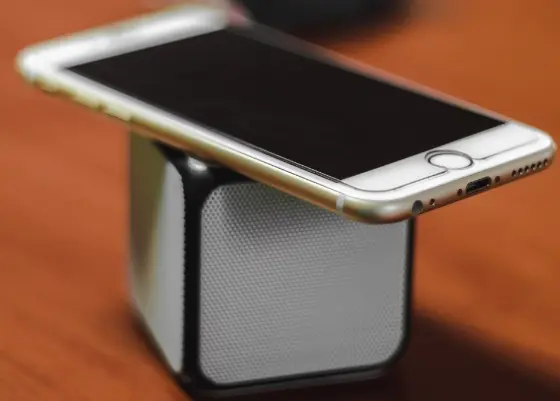
Bluetooth wireless Speaker RoHS Certification Test
With the rapid and exponential growth of electronic and electrical equipment, a large amount of electronic waste has also increased rapidly. To control the pollution of electronic and electrical waste to the ecological environment, different countries or regions have issued relevant laws and regULations to manage it. Among them, the EU's directive RoHS 2.0, which restricts ten categories of hazardous substances in electrical and electronic products, requires that all electrical and electronic products exported to the EU (excluding medical and monitoring equipment) must meet this restriction requirement from July 22, 2019. RoHS is an environmental certification for products and materials entering the EU market. This directive is mandatory, and products or materials that do not comply with this directive cannot be sold in the market.

What Products Does the RoHS Directive Target?
The RoHS directive targets electrical and electronic equipment, aiming to REDuce the risk to human health and environmental safety from hazardous substances in electrical and electronic equipment during disposal and treatment. Since the directive requires that any homogeneous material in electrical and electronic equipment must not exceed the specified limits of hazardous substances, in fact, raw materials and components related to electrical and electronic equipment are affected by the directive. Additionally, the EU has similar legislative controls for other products that may bring similar issues, such as the End-of-Life Vehicles Directive, Battery Directive, and Packaging Directive.
How Much Does ROHS certification Testing for Bluetooth Speakers Cost?
The cost of RoHS 2.0 testing for ten items and ROHS Testing for six items is different. RoHS 2.0 includes more test items, and the projects tested vary depending on the product. Materials and colors need to be tested separately, and the fees are also different. The testing cycle is approximately 5-7 days, depending on the items tested for the product.
What Are the Ten Testing Items of RoHS 2.0?
1. Lead (Pb): Examples of use include solder, glass, and PVC stabilizers.
2. Cadmium (Cd): Examples of use include switches, springs, connectors, housings, PCBs, contacts, and batteries.
3. Mercury (Hg): Examples of use include thermostats, sensors, switches and relays, and lamps.
4. Hexavalent Chromium (Cr6+): Examples of use include metal anti-corrosion coatings.
5. Polybrominated Biphenyls (PBBs): Examples of use include flame retardants, PCBs, connectors, and plastic housings.
6. Polybrominated Diphenyl Ethers (PBDEs): Examples of use include flame retardants, PCBs, connectors, and plastic housings.
7. Diisobutyl Phthalate (DIBP): Used as a plasticizer for PVC, it can be used as a substitute for DBP and as a plasticizer for cellulose resins, vinyl resins, and neoprene.
8. BIS(2-ethylhexyl) Phthalate (DEHP): Mainly used as a plasticizer for PVC. PVC is used as an insulator in electrical and electronic equipment such as cables and wires. A small amount of DEHP is used in other non-polymer uses, such as ceraMICs in electronics or electrolytes in capacitors.
9. Dibutyl Phthalate (DBP): Mainly used with other plasticizers in PVC components such as cables, sockets, pipes, and shock absorbers. It is also used in some non-polymer materials such as paints, adhesives, sealants, and printing inks.
10. Benzyl Butyl Phthalate (BBP): Mainly used as a plasticizer in PVC flooring. It may also be found in synthetic leather, textile coatings, PVC materials, printing inks, sealants, and adhesives in electrical and electronic equipment.
The content of these hazardous substances in any homogeneous material must not exceed 0.1%. Considering that companies need a certain buffer period, the directive also specifies a corresponding transition period, so it is currently determined based on customer needs and is not mandatory.
RoHS Certification Process for Bluetooth Speakers
1. Step 1: The customer provides product pictures, a BOM (Bill of Materials), and an application form.
2. Step 2: JJR engineers quote based on the provided information.
3. Step 3: After the customer confirms the quotation, they sign the filing application form and service agreement and pay the full project fee, and prepare the test samples; (the specific number of test samples will be coordinated with our staff).
4. Step 4: The customer arranges to mail the samples to the laboratory for testing.
5. Step 5: Testing is completed, the report is edited, the report is completed, and the rohs test report is issued.
Note: If the test fails, the sample needs to be rectified (replace raw materials) and retested until it passes.
Email:hello@jjrlab.com
Write your message here and send it to us
 2026 EU SVHC Candidate List (253 Substances)
2026 EU SVHC Candidate List (253 Substances)
 LFGB Certification Cost and Timeline Guide
LFGB Certification Cost and Timeline Guide
 Bluetooth FCC Test Report
Bluetooth FCC Test Report
 Is FCC Testing Required?
Is FCC Testing Required?
 Where to Find FCC Test Reports
Where to Find FCC Test Reports
 LFGB Compliance Testing for Plastic Food Contact M
LFGB Compliance Testing for Plastic Food Contact M
 How to get LFGB Compliance Report for Food Grade P
How to get LFGB Compliance Report for Food Grade P
 LFGB Certification Process for Kitchenware Product
LFGB Certification Process for Kitchenware Product
Leave us a message
24-hour online customer service at any time to respond, so that you worry!




